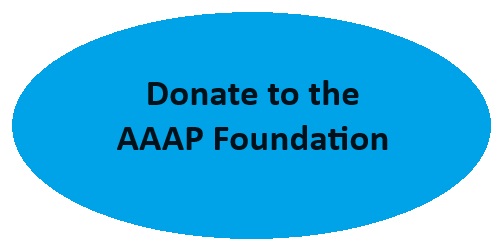- About
- Journal
- Bookstore
- Committees
- Events
- Advocacy
- Awards
- Donate to the AAAP Foundation
- Bayer-Snoeyenbos New Investigator
- Calnek Applied Poultry Research Achievement
- Excellence in Mentorship
- Hall of Honor
- Life Membership
- Lasher-Bottorff Award
- Outstanding Animal Welfare Presentation Award
- Outstanding Field Case/Diagnostic Report
- Phibro Excellence in Poultry Research
- P.P. Levine Award
- Reed Rumsey Student Award for Advancement in Avian Medicine
- Rimler Graduate Student Award for Excellence in Poultry Disease Research
- "Rosy" Rosenwald Student Poster
- Special Service Award
- Y.M. Saif Award for Best Case Report in Avian Diseases
- Scholarships
- Donate to the AAAP Foundation
- Apply for a Scholarship
- Foundation Giving Guilds
- AAAP Travel Grant for Veterinary and Undergraduate Students
- AAAP Foundation Poultry Scholarships
- AAAP Foundation Externship Program
- AAAP Foundation/Merck Animal Health Veterinary Student Scholarship
- AAAP Foundation/Elanco Memorial Scholarship
- AAAP Foundation/Cobb Scholarship
- Poultry Graduate Student Travel Grant
- L. Dwight Schwartz Veterinary Student Travel Award
- News
|
GUIDELINES & PREVENTION Poultry veterinarians and producers play a primary role in maintaining a safe, secure and stable food supply, and must maintain access to the clients and patients they serve even during the pandemic outbreak of COVID-19 while incorporating preventive measures to decrease the risk of infection to themselves and others. The American Association of Avian Pathologists recommends the following guidelines for poultry veterinarians and their clients: ■ Practice good hygiene. Wash your hands frequently with soap and water for at least 20 seconds. Avoid touching your face. Cover coughs and sneezes with a tissue. ■ Stay home if you are sick. Your clients should inform all employees to not come to work if they are feeling unwell. Management on farms should routinely look for ill employees and immediately send them home. Maintain flexible leave policies and make sure all employees know they need to stay home if they are ill. ■ Avoid close contact and practice social distancing when possible. If you or your staff are able, work remotely. Maintain at least 6 feet between contacts. ■ Clean and disinfect frequently touched surfaces daily. ■ Practice strict biosecurity at all production sites. Visitors not necessary for the operation of the business should not be allowed onto the premises. ■ Do not hoard supplies. The American Veterinary Medical Association (AVMA) has received some reports of limited ordering for some medical supplies (e.g., masks, gloves). Hoarding of supplies or bulk purchasing in anticipation of a shortage is not recommended as it could create artificial product supply issues. ■ Conserve personal protective equipment (PPE). Some states are asking veterinarians to donate or sell any excess PPE to state health departments. Many states have urged veterinarians to delay any elective visits or diagnostics to preserve supplies. Veterinarians are being asked to limit elective procedures to decrease social interaction and decrease the use of supplies, such as gowns, gloves, and masks that are also used in human medicine and critical for patient care and responder protection during this outbreak. ■ Develop and maintain farm and business emergency plans. Both veterinarians and producers should have plans and protocols in place in the event of staff shortages. Clients should have a plan for continuity of necessary job functions critical for animal health and well-being in the event employees self-isolate or are quarantined. ■ Consider your mental health and well-being as well as the mental health and well-being of your clients and employees. The farm economy and stress of being a poultry veterinarian can be exacerbated during the uncertain times we are currently facing. Ask your employees how they are doing. If you are experiencing a mental health crisis, we encourage you to reach out to resources in your community, colleagues, online or at the AVMA wellness resource page found at https://www.avma.org/resources-tools/wellbeing. Online counseling resources are available for veterinarians in rural areas to seek wellness assistance confidentially from the privacy of their home. Visit the CDC’s COVID-19 website that offers helpful guidance on “How to Prepare: Managing Anxiety and Stress,” with some suggestions for things you can do to support yourself, your family, children and the community, including: ■ Avoid excessive exposure to media coverage ■ Take care of your body ■ Make time to unwind and remind yourself that strong feelings will fade ■ Connect with others ■ Maintain a sense of hope and positive thinking In case it is needed by someone, we encourage all veterinarians and producers to put the Suicide Prevention Hotline number in their phone contacts. That number is 800-273-8255 (US) or 853-456-4566 (Canada). |


